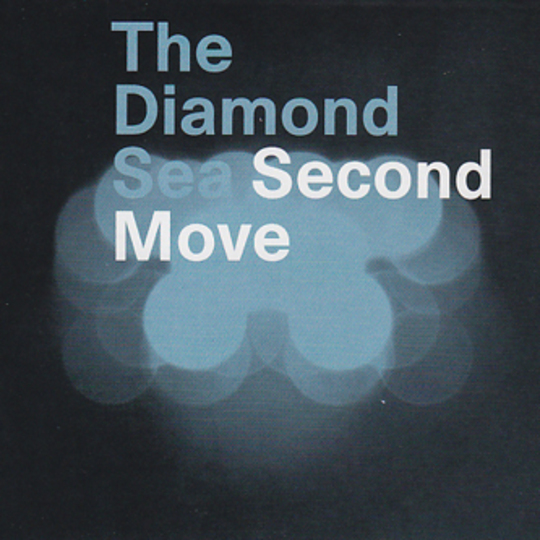The Diamond Sea named themselves after a song by Sonic Youth, but other than their decidedly lo-fi production and loose approach to song structures, the connection between the two bands ends there. The largely-acoustic Leeds trio have made their debut album, Second Move, out of hushed chords, mumbled vocals and a bass that rumbles and grooves.
That bass in particular is a bit frustrating, as it is constantly mixed too high. In ‘The First One’ its pulsating arpeggio gives the song its clunky hook. Combining with fast drum rolls and ambitious lead guitar in the chorus, it makes The Diamond Sea sound, in principle, worryingly self-indulgent. But they are saved by their relaxed approach to recording, which makes the whole of Second Move sound cheaply, unprofessionally and lovingly made. Once you accept that, the band’s indulgences sound, more than anything, playful.
It’s a similar story on ‘Son’, which starts with a complex lead guitar pattern that leads into wet, chugging chords. Again though, the cheap flange effect makes this emotional section of music sound humble where it might have sounded awkward. This could have been a really embarrassing classic rock anthem, but the crap vocals, slapdash production and homemade aesthetic make for a track that shows refreshing authenticity.
On ‘Turn It Around’, however, The Diamond Sea take themselves a bit too seriously with a slower, more reflective song. Unfortunately songs like this need to articulate feelings rather than just suggest them, and the vocals here are too weary and weak to make an impact. The song gets gradually louder but it doesn’t actually build, musically or emotionally, and ends before it even comes close to climaxing.
The coda of ‘Brand New’ is far better, with crunchy guitars playing clunky lead parts that jump enthusiastically out of a broadly relaxed album. Similarly ‘On A Night Like This’ is more effective, as layers of fuzzy arpeggios grow out of familiarly lethargic chords, which are gradually strummed harder and harder. The song eventually drips back to a more subdued closing passage, giving it a pleasing circularity without repeating itself.
The first and last tracks sum up the best and the worst of The Diamond Sea. Opener, ‘Stealing’ could be a token acoustic ballad from an indie lad-rock album, and is only passable for the homeliness that the whole sound of Second Move is defined by. ‘End Song’, which closes the album, is far less conventional. It drifts through stuttering sweeps of distorted guitar, eventually reaching an elegant cadence that calmly settles the record down to a close.
The ambience that ‘End Song’ encapsulates is what makes Second Move a worthwhile listen. The Diamond Sea are far from polished, and you won’t be singing along to their songs in the car or dancing to them in nightclubs. But if you’re looking for an album to soundtrack lazy Sundays and picnics in slightly-too-chilly weather, then Second Move will help you pass the time when time is there to be wasted.
-
6Robert Cooke's Score






















